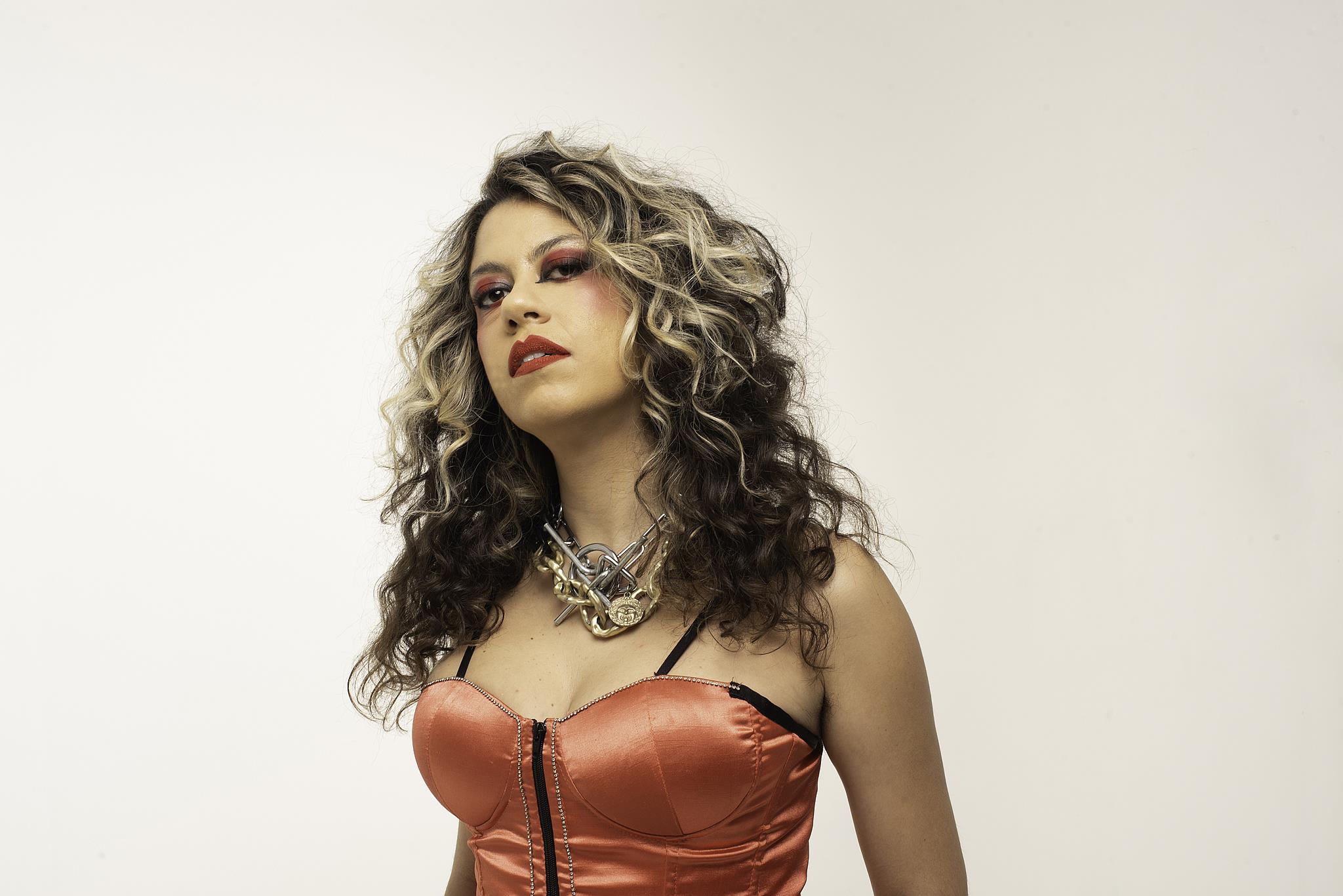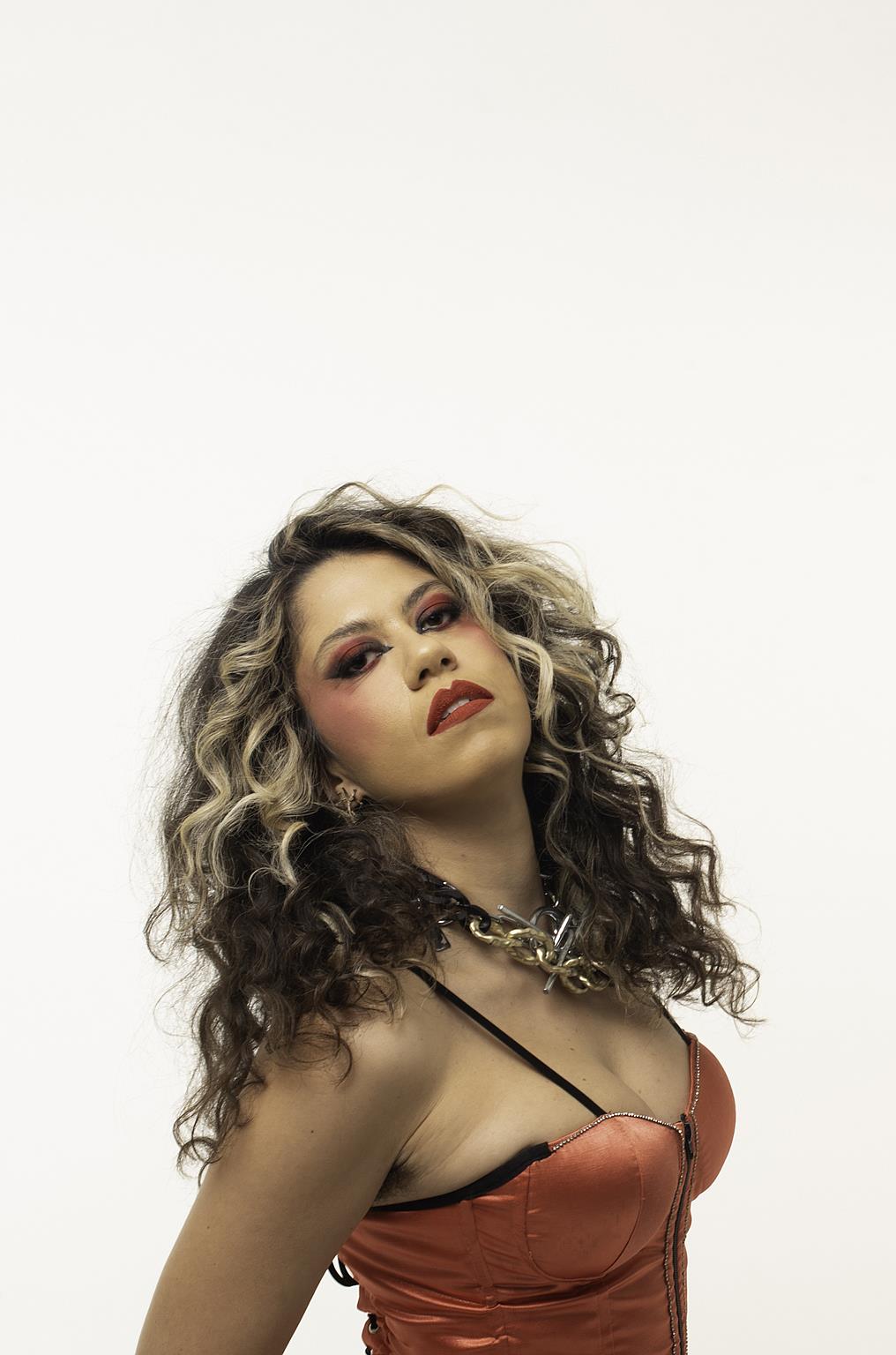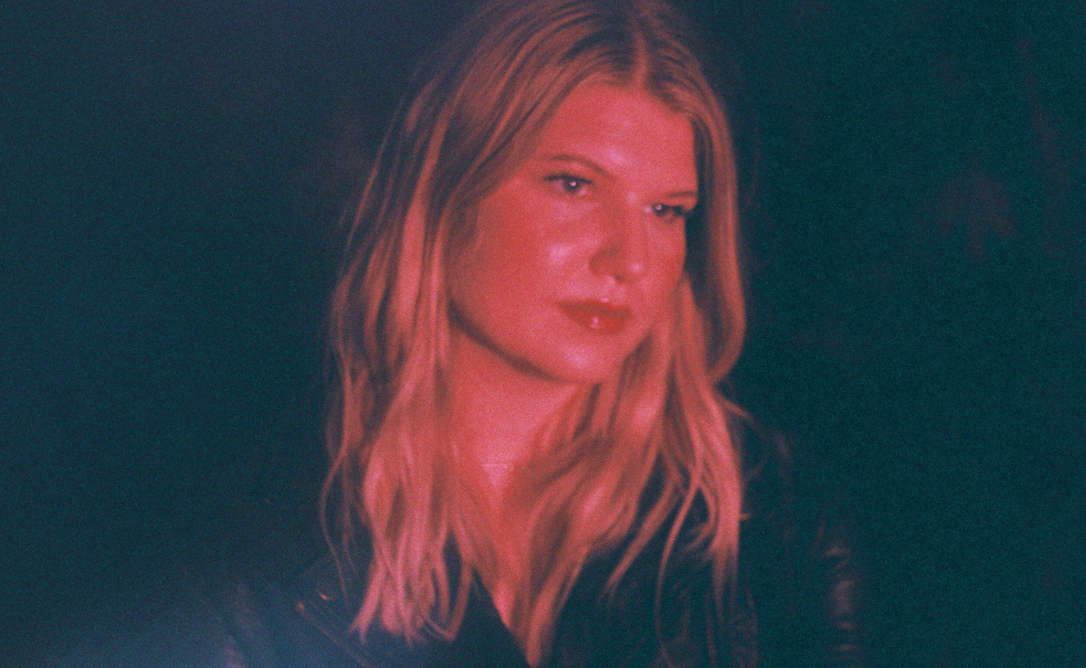Composer and performer Marcela Lucatelli releases “ANTICIVILIZATOR,” the second music video in her audiovisual trilogy that began with “JANEIRO JUNTO É BOM.” The new track, part of the acclaimed album Coisa Má, combines deep beats, ironic vocals, and broken grooves in a sound ritual that mixes social criticism, pleasure, and enchantment. Directed by the artist herself, the video narrates a journey of ecstasy and insubordination, expanding the boundaries between the urban and the ancestral.
Marcela, “ANTICIVILIZATOR” seems to translate an almost ritualistic rebellion, in which the body becomes manifest. How do you see the relationship between sound, body and resistance, especially at this moment in your career?
The body is the first instrument of resistance. Even before any word, it vibrates, pulses, responds — and makes music. ANTICIVILIZAR is born from this desire to restore the body’s ritualistic and political power. Sound, for me, is living flesh in motion, a body in friction with the world. At this moment in my career, when I am turning my gaze to Brazil with greater presence and intensity, I want to ignite this fusion: body and sound as a living language of rebellion. Better than simply resisting is being able to exist in ecstasy — dancing, laughing, transforming oneself. This is also insurgency.
In this new music video, you literally dance on the rubble, symbolizing transgression and the collapse of norms. Where did the inspiration for creating this trance-like and rebellious atmosphere come from? And what was it like bringing this visual concept to life?
The image of the rubble is almost a mirror of the world in collapse — climatic, social, emotional. But it also carries a certain sensuality of the end, you know? A raw freedom that only emerges when everything collapses. The visual inspiration came from this desire to dance amidst the destruction, to transform chaos into a ritual, into liberation. The main character in the video feels the effect of her own liberating potion on her body, crossed by references that range from trance in indigenous and Afro-Brazilian rituals to Afro-diasporic electronic music , passing through punk cinema and physical theater. It is a body that collapses and transcends at the same time.
You have been described as a composer who explores the limits of the body and voice, creating radical and challenging experiences. How do you approach this boldness in transforming limits into artistic language? What does it represent for you as a creator?
I do not seek radicality for radicality’s sake. What moves me is the desire to excavate, to shave, to tear apart surfaces and to sew together new worlds. The body has a lot to say before being domesticated by language. My boldness comes from the urgency of listening to this body and its desires without a filter — to scream, to laugh, to moan, to break forms. These limits that are imposed on us are civilizing fictions, and breaking them is to free creation. It is in this breaking that art breathes power.

The song “ANTICIVILIZADOR” carries a sound hybridity that flirts with drill , pagodão and experimental hip-hop. How was the sound construction process of this track and how does it interact with the references that you admire?
It was a process of sonic possession. I wanted a beat that was dirty, almost grotesque, but also danceable — a mix of apocalypse and dance. Drill and pagodão bring this tension: violence, eroticism, survival. I worked with textures that dilute genres and activate the body. It’s a sound that doesn’t want to please — it wants to invade, provoke, pull the listener into the skin of the city.
You mentioned that the track is meant to instigate, not console. Why do you think it’s important to provoke, laugh at the seriousness and dance on the ruins, especially in today’s social landscape?
Because laughter is revolutionary. It faces reality head on, creates new connections and prevents us from falling into the rigidity of absolute truths. This is essential to keep our being in the world in creative movement. Provocation, for me, is a way of decolonizing the senses — breaking with the normativity of comfort and making room for other ways of feeling and imagining. In times so focused on a narrative of inevitable collapse, we cannot limit ourselves to arts that only distract or anesthetize. Art also needs to be a spell , a laugh, a symbolic bomb. Dancing on the ruins is not accepting the end as destiny. It is transforming the fall into a ritual of rebirth.
The audiovisual trilogy that began with “JANEIRO JUNTO É BOM” gains strength with “ANTICIVILIZADADOR” , where the urban and the ancestral meet. How do you imagine the continuation of this trilogy and what can we expect from the next stage?
The next track is the final poison — a kind of psychedelic offering. Each video in the trilogy deals with a different type of possession: love, anger, and, finally, transcendence. The urban and the ancestral will continue to merge, because there is no real separation between them. The city is a terreiro . The concrete also pulsates. And the trilogy closes with this hallucinatory and mystical vision of a new planet, born from the ashes.

Your international career includes partnerships with renowned ensembles and participation in important festivals. How do these experiences influence your way of creating and what did you bring from these experiences to this new music video?
These experiences have broadened my listening and empowered me to trust my own path—wherever my creative mission calls me. Working with contemporary ensembles and radical improvisers has taught me to compose with silence, with risk, to see what many call mistakes as portals to other dimensions. I brought this to the music video: the confidence to let sound breathe, to create images that don’t explain, but invoke. This international transit allows me to think from the margins—and being a foreigner is, for me, a powerful way to create.
“ANTICIVILIZATOR” is an invitation to laugh with anger and transform the body into a manifesto. In your opinion, what is the power of uniting music, performance and social criticism? What do you hope to awaken in the audience that listens to and watches your work?
I want to provoke a discharge. A short circuit. When music, performance and social critique merge, a space is created where something real can happen — a place of suspension, of power, of freedom. I don’t expect the audience to understand everything rationally. I want them to feel, to vibrate, to recognize themselves and to be surprised. To leave feeling affected, provoked, perhaps even a little possessed. Because the world needs new ways of feeling — and of rebelling.
Follow Marcela Lucatelli on Instagram





